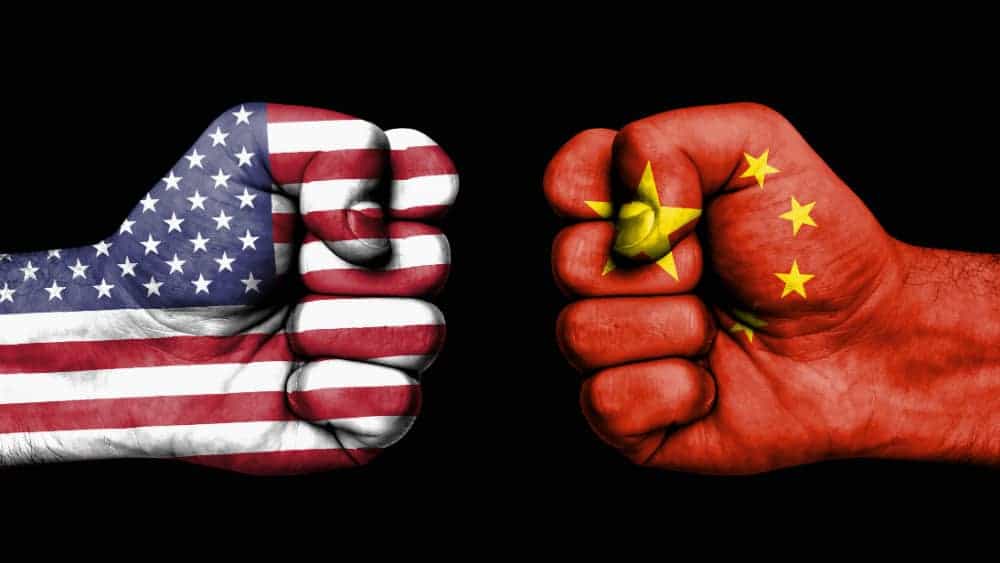S&P 500 futures tumbled again over the weekend after U.S./China trade talks stalled and China vowed retaliation against Donald Trump’s 25% tariff on Chinese goods. The news hit tech stocks particularly hard, while almost every sector suffered losses in what’s shaping up to be the worst selloff since last year’s correction.
Although the current selloff is mostly affecting U.S. equities, the TSX has been hit as well, falling 2% last week. While the TSX isn’t directly affected by any of the tariffs being discussed, it’s indirectly impacted, both because of Canada’s trade with the U.S. and the fact that many TSX stocks are disproportionately owned by U.S. institutions.
Therefore it’s entirely possible that any U.S. economic slump or market selloff could lead to long term losses on the TSX — although probably not as severe as what we’re seeing in the U.S. To understand why that is, we need to look at how integrated the U.S. and Canadian economies are.
Canada-U.S. trade
The Canadian and U.S. economies are highly integrated. Canadian exports to the U.S. add up to 20% of Canada’s GDP, and many Canadian companies depend on U.S. exports for a large percentage of their revenues.
Consider Canadian Pacific Railway (TSX:CP)(NYSE:CP). Canadian Pacific transports goods all across North America and has a particularly lucrative business in the U.S., where it benefits from the high U.S. dollar. The current trade spat with China won’t hurt Canadian Pacific’s business immediately; in fact, it might even boost certain exports. However, to the extent that it signals a tariff-happy president whose aggressive trade policy will probably not end with China, it could send shares lower on anticipation of future tariffs on Canadian exporters.
China vows to retaliate
Another factor to consider is China’s retaliation against the U.S.
China won’t take a massive tariff hike lying down and is already considering retaliation against President Trump’s actions. China has demonstrated it’s willing to put its money where its mouth is, having ceased imports of U.S. soybeans last year. How far these retaliatory measures will go is anybody’s guess, but if they put a significant dent in the U.S. economy, Canadian stocks will suffer as well.
Mass selloffs
Because the U.S. is such a massive export market for Canadian companies, any U.S. slowdown would likely hit Canadian corporate earnings across the board. However, such a slowdown needn’t even occur for Canadian stocks to tank. American institutions are some of the biggest owners of Canadian stocks, so if they start selling equities, there’ll likely be some downward movement on the prices of Canadian stocks. This holds whether there’s an actual decline in underlying earnings or not.
Foolish takeaway
As Warren Buffett has said, trade wars are bad for the whole world. So far, the spat between the U.S. and China has corroborated that observation, sending stocks lower and increasing economic jitters. It’s too early to say whether the current trade strife will have long-term consequences. For now, it may be best to stick to stocks that aren’t too reliant on exports.










